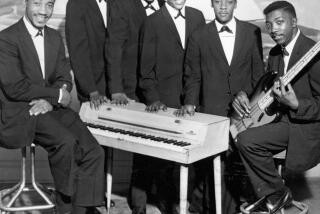Poet Miller Williams dies at 84
Miller Williams, who died on New Year’s Day at 84, led an exemplary literary life. Poet, professor, mentor, he spent the last half century actively engaged in not just his own work but also facilitating the work of others; at Loyola University, he started the New Orleans Review, and later, after moving to the University of Arkansas (where he taught until his retirement in 2003), he founded and directed the University of Arkansas Press.
He also served as poet for Bill Clinton’s second presidential inauguration and was the father of the musician Lucinda Williams, with whom he performed, at times, during his later years. “My poetry and her songs,” William said in a 2004 interview, “— you could say they both have dirt under the fingernails. In my writing, I try to get down to the nuts and bolts of living, and there’s no question that Lucinda does that, too.”
“Dirt under the fingernails” is a perfect description of Williams’ ethos as a poet; his work is hand-made in the finest sense. Direct, occasionally rough-hewn but always elegant, he found emotion, soul even, in the concrete.
Here, in its entirety, is perhaps his best-known poem, “Compassion,” which (among other things) inspired his daughter’s latest album:
Have compassion for everyone you meet,
even if they don’t want it. What seems conceit,
bad manners, or cynicism is always a sign
of things no ears have heard, no eyes have seen.
You do not know what wars are going on
down there where the spirit meets the bone.
It’s a brilliant piece of work, a lesson in both directness and compression, highlighting what Williams saw as poetry’s central sustenance: “to be in touch with that part of ourselves we call the human spirit.”
That assertion comes from the book “Making a Poem: Some Thoughts About Poetry and the People Who Write It,” which appeared in 2006. There, Williams distills a lifetime of writing and thinking about verse to make a case for poetry as essential to our collective inner life.
Especially in the current moment — a moment of dislocation, in which we are often degraded, asked to set aside our humanness in the slipstream of technology and corporate culture — poetry, Williams suggested, might offer us a way of reconnecting with ourselves.
“I’m not offering a cure for the world’s ills,” he wrote, “or pep pills for the despondent, or a way to happiness, but I am committed to the belief that poetry — as well as painting and sculpture, music and dance and drama — in a time when we are sometimes tempted to pull away from the world, in a time when there is so much to withdraw from, in a time when we may forget that to be a little bit numb, to be a little anesthetized, is to be a little bit dead, may in a small way help to keep us alive.”
As to what that means, Williams had few illusions; he understood what life demands. “Some of what we do,” he insists in “Love Poem with Toast,”
we do
to make things happen,
the alarm to wake us up, the coffee to perc,
the car to start.
The rest of what we do, we do
trying to keep something from doing something,
the skin from aging, the hoe from rusting,
the truth from getting out.
Yes, yes, I want to say, that’s it exactly: the interplay between inner and outer, between who we are, really, and what we do to be part of the world. Living is hard, which means poetry can be a consolation, but even more than that, it offers us a lens through which to reveal — to celebrate, even — who we are.
Or, as Williams wrote in “Of History and Hope,” the poem he delivered at Clinton’s inauguration:
But where are we going to be, and why, and who?
The disenfranchised dead want to know.
We mean to be the people we meant to be,
to keep on going where we meant to go.
twitter: @davidulin
More to Read
Sign up for our Book Club newsletter
Get the latest news, events and more from the Los Angeles Times Book Club, and help us get L.A. reading and talking.
You may occasionally receive promotional content from the Los Angeles Times.








